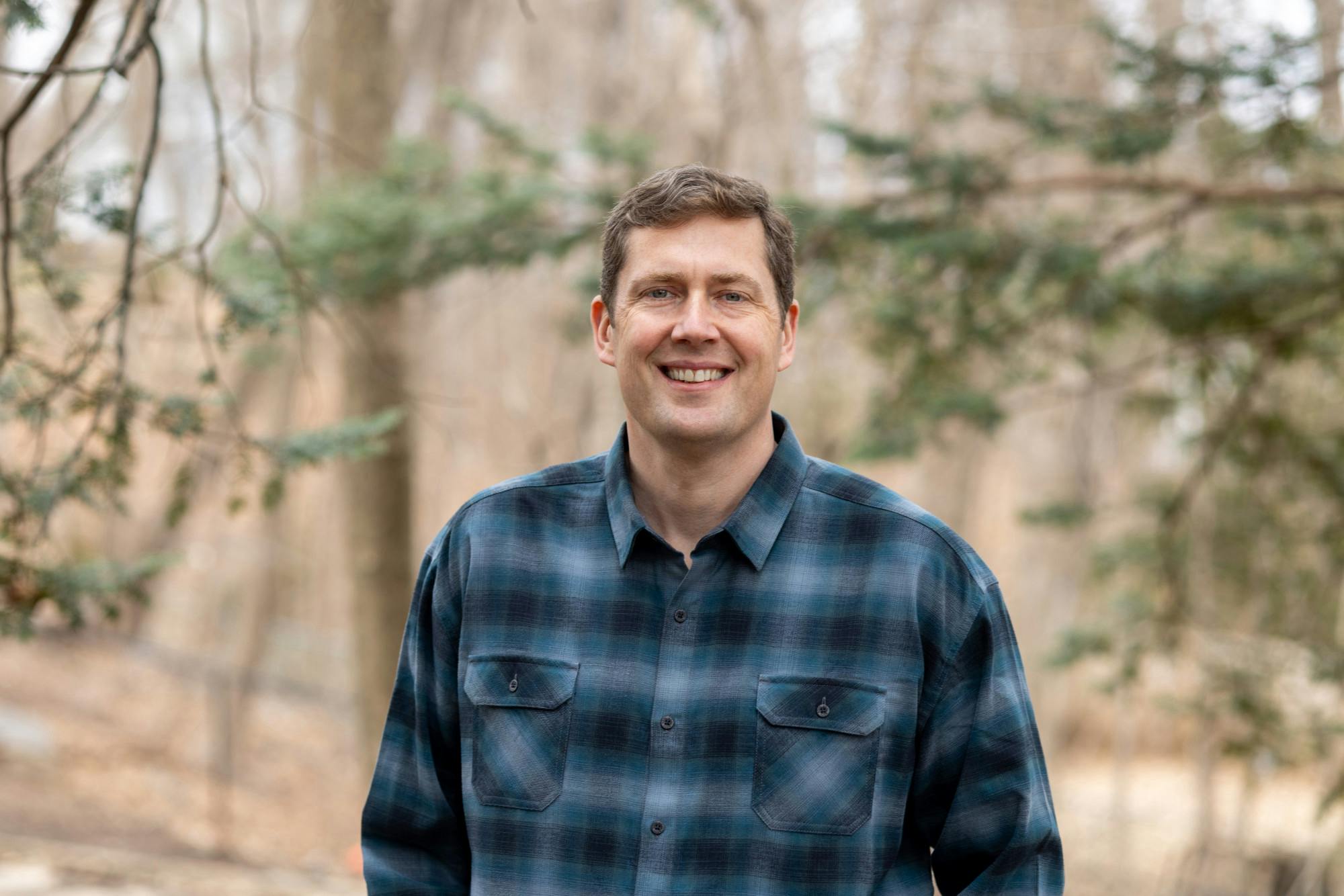Last month, Colin Van Ostern Tu’09 declared his candidacy for the Democratic nomination to represent New Hampshire’s 2nd Congressional District. If successful, Van Ostern will replace Rep. Annie Kuster ’78, who announced her retirement in March and endorsed Van Ostern — her former campaign manager — on Tuesday, according to past reporting by The Dartmouth.
Van Ostern, who served two terms on New Hampshire’s Executive Council from 2013 to 2017 and secured the Democratic Party’s gubernatorial nomination in 2016 — ultimately losing to current Republican Gov. Chris Sununu —said he wants to protect reproductive rights and lower household costs for middle-class Americans. The Dartmouth sat down with Van Ostern to discuss his congressional campaign, past political experience and connection to the College.
What motivated you to run for Congress?
CVO: I want to fix what’s broken in Washington, and I have some very specific ideas about how to do that. The only way to fix what’s broken in Congress right now is to put what’s best for everyday people in middle-class families first again. That includes fighting for a national law to protect the full range of reproductive rights — including in vitro fertilization, birth control and equitable access to abortion — no matter where you live. It also includes cutting basic household costs, meaning healthcare, tuition, childcare and housing — which is a big issue in New Hampshire. Do those things, and we will start to restore people’s faith that our government can work for them again.
You served on New Hampshire’s Executive Council for two terms. How do the initiatives you undertook as a councilor translate to your campaign?
CVO: One of the big issues I worked on was restoring funding for our state’s birth control, cancer screening, annual exams and state Planned Parenthood health centers. I ran on those issues and unseated someone who had shut off that funding, and then I got that funding restored. I was named “Champion for Choice” by Reproductive Freedom for All New Hampshire. I think that directly connects with the fights we face today. We’re fighting to protect the full range of reproductive freedoms across the country.
A second example is fighting for lower healthcare costs and making healthcare more accessible by implementing the Affordable Care Act here in New Hampshire. We got it done. A decade later, nearly 100,000 of our fellow citizens have gotten better, cheaper healthcare because we expanded Medicaid in our state. I’m very proud of that work. When it comes to cutting healthcare costs nationally, I know that we set a good example that we can draw from to continue to make even more progress.
If elected, you would succeed Rep. Annie Kuster, who has served New Hampshire’s 2nd Congressional District for more than ten years. Are there elements of her tenure that you are inspired by or wish to continue?
CVO: There are certainly issues that we fought for together. She was actually named “Champion for Choice” by Reproductive Freedom for All New Hampshire a few years before I was. She and I have been allies, and I view her as kind of a team captain of sorts for many of us who have fought for reproductive rights and reproductive freedom. I also think that Annie has done a good job of approaching the job by trying to find common ground, regardless of political lines. That’s the sort of approach that I would plan to take as well.
You ran for governor in 2016 and were narrowly defeated by Gov. Chris Sununu. How has your experience from that campaign influenced your congressional campaign today?
CVO: It is certainly one of the things that has given me the faith to run again. In 2016, I won New Hampshire’s 2nd Congressional District. That was a bad year for Democrats, and I was up against a very tough opponent, but I won this district.
I think that matters because it will be a very close race in the fall. It’s a swing district, and I know that it’s important that we have a strong nominee who will fight for strong democratic values — someone who’s fearless to take on tough challenges. That’s what I’ve done before, and I’m very grateful that the people of this district have voted for me before.
Could you speak about your time as a student at the Tuck School of Business? How has it impacted your career?
CVO: My wife and I both went to school at Tuck, and we lived in Hanover for three years. We’ve lived in Concord now on and off for about 25 years. I have lifelong friends from Hanover, some who are helping me in this race. I’m really honored that there are folks who have been involved in Democratic politics in the Upper Valley for many years. Those personal relationships matter. It’s a community that I care about — not just Dartmouth, but the Upper Valley community as a whole.
This interview has been edited for clarity and length.




